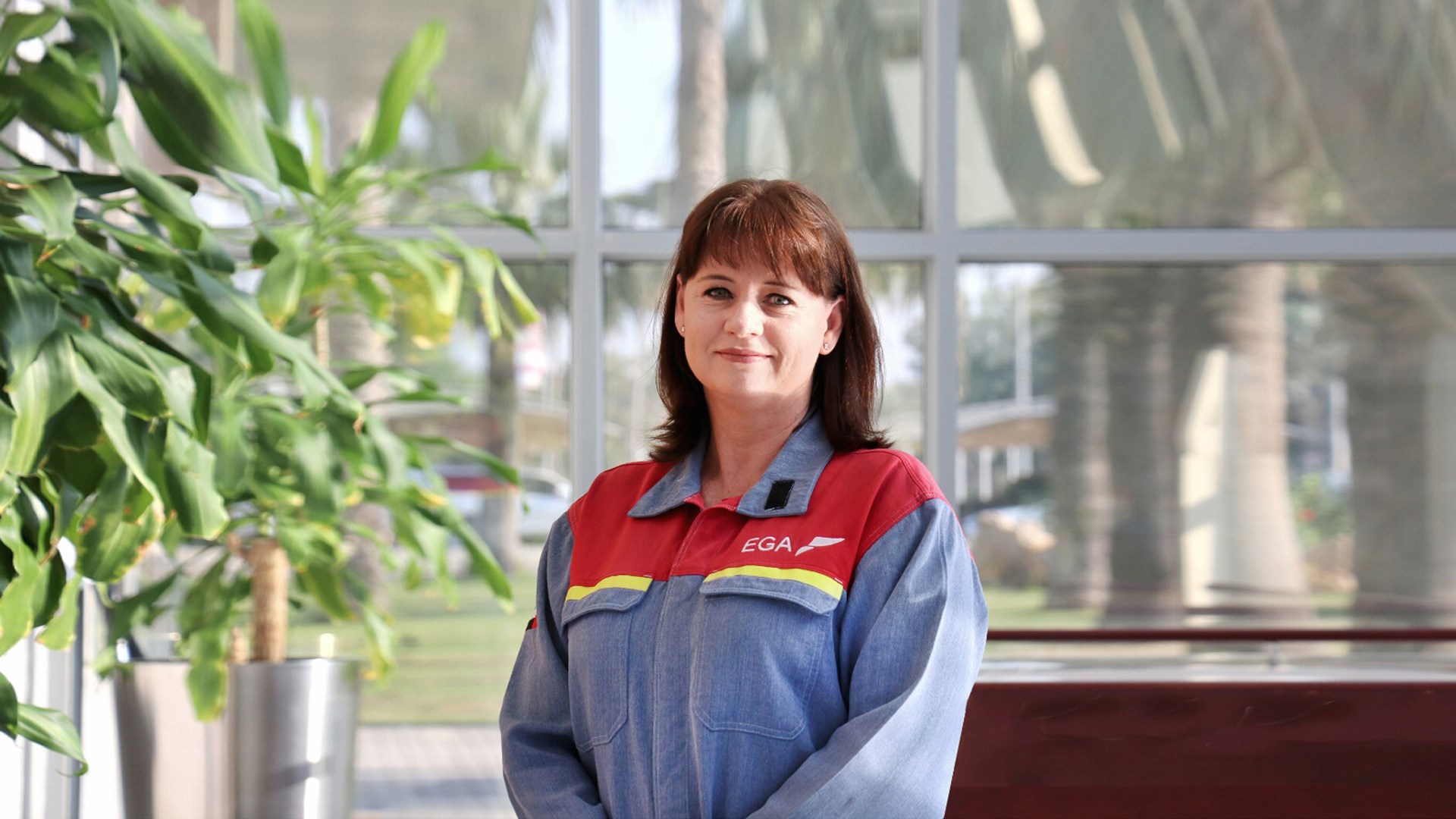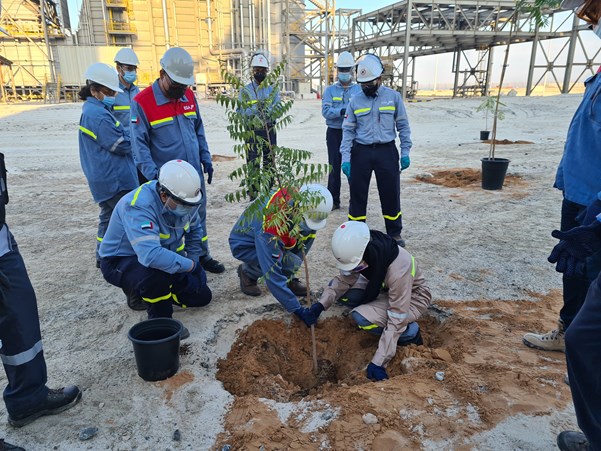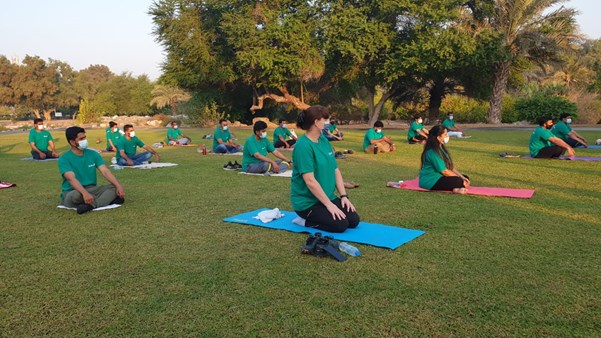
Minding our own business
Even before COVID-19 catalysed global conversations about the pandemic’s mental health impact, Emirates Global Aluminium had been working to elevate mental wellbeing as a priority health-and-safety issue in the workplace. In 2017, EGA launched its Employee Assistance Programme, offering confidential counselling, legal and financial advice, and crisis-intervention services to all employees and their family members, free of charge.
But for EGA’s Associate Manager of Safety Governance, Elizabeth Bredell, it was not until COVID-19 hit in early 2020 that she came to truly appreciate the urgency with which mental wellness needed to be prioritised, alongside physical health and safety.
“If someone has a physical injury or illness, no one questions the validity of their ailment,” said Elizabeth. “Mental wellbeing issues, on the other hand, are not immediately evident to the untrained eye and, as a result, often go unaddressed.
“Within the last year, mental wellbeing has obviously been spoken of a lot. At the beginning, for me personally, I knew what to do when it comes to physically taking care of our people, but the mental aspect was new to me”.
Poor mental wellbeing negatively affects happiness, productivity and retention, and can impact physical health as well. That makes it an issue that affects both people and the bottom line.
To be sure, Elizabeth is more familiar than most with the evolution of heavy industry’s approach to workplace health and safety.
A South African, Elizabeth was just 17 years old when she enlisted in the Engineer Corps of her country’s Defense Forces. During her 10 years of service, she was tasked with setting up and overseeing health and safety, which she recalls was a new concept for the military at the time.
“An injury when you’re in the army is part of the job. There were investigations for bigger events, but the idea of preventing injuries in the workplace was something we were building in. I found it eye opening as we worked with big companies to draft these policies. That’s when I realised that workplace incidents are not supposed to happen, and it’s our responsibility to protect the employee and the employer”, she said.
Following her military service, Elizabeth pursued higher training in safety management before arriving in the United Arab Emirates in 2006, when she joined EGA’s Safety team. Over the next 15 years, both she and her team grew together, overseeing everything from regulatory audits to occupational protocols and initiatives, which today include the mental wellness project.
By the time COVID-19 hit, EGA had already begun planning to roll-out more holistic workplace wellness programmes. The pandemic accelerated these plans as most office staff were immediately required to shift to working from home, operational staff were reorganised into new shifts, and residential staff were rehomed in new EGA accommodations to allow for the implementation of social-distancing and other COVID-19 prevention measures.
Though necessary, these measures were also restrictive, requiring varying degrees of personal sacrifice—particularly from those essential staff who continued to work and live on site.
Reflecting on these early days of the pandemic, Elizabeth said: “I think all of us started to feel the weight of it. For many of us, who were on site all the time, being at home felt like we were trapped. People couldn’t go out, couldn’t see their friends and colleagues in person. It took a toll on a lot of us.
“We stressed the importance of providing access to leisure activities, particularly for our people living and working on site. We helped to re-build the garden area where people were able to plant seeds and nurture them in an outdoor space where they could enjoy their free time. We also have a fishing area, gym and swimming pool, along with various other facilities, and we’re now preparing a running track around the woods in our residential area. Mental wellbeing, as we know, is also closely linked to physical wellbeing.”

As the pandemic continued, EGA expanded its mental wellness programme far beyond these measures. Beginning in October 2020, Elizabeth and her team launched a campaign to engage all employees, with dedicated theme each month linked to positive emotions that foster mental wellbeing and are aligned with EGA’s purpose and values.
So far, Elizabeth and her team have rolled-out monthly mental-wellness programmes surrounding themes including ‘mindful wellness, gratitude, appreciation, kindness and friendship. This month’s theme, ‘Positive Mindset’, and future themes, such as ‘Financial Wellness”, are already on the docket.
“One of the main objectives of the ‘monthly theme’ programme is to raise awareness about mental wellbeing so people feel able to do something about it. When we have a sore arm or hurt ourselves, we go to the doctor, but what happens when we are mentally unwell? A lot of us don’t know. A lot of us are discovering that it’s not uncommon and that we’re all actually quite similar in the way we feel. This discovery helps break taboos”, Elizabeth explained.

Across EGA, a cohort of mental health first aiders have been trained as easily approachable support for colleagues who feel they need it. Senior leaders have been trained as mental health advocates. “It’s important that everyone understands what mental wellbeing means and who can help if something is going wrong. If I look at my own understanding and how that’s evolved, I didn’t know what anxiety, depression and stress within the workplace meant. I always treated it as work. You go to work, you do your thing, and you go home”, she said.
However, as a woman, Elizabeth recognises social conditioning makes it less difficult for her to open up than some of her male colleagues.
“I feel it’s easier for women. We cry if want to, we laugh if we want to. However, the majority of our workforce at EGA is men. And men are less socially inclined to talk about their feelings, which is why we arranged special sessions catered to their needs and tendencies, creating safe spaces, where they could talk freely and open up about mental wellbeing without being judged.”
The outcomes have been extremely encouraging, with more than 4,985 employees taking part in over 42 webinars thus far.
EGA has plans to build on this success, continuing this year to encourage people, through training and awareness, to overcome the stigma surrounding mental wellbeing in the workplace. Next year will see a drive to further codify EGA’s mental wellbeing approach and measurement, establishing the company as a leader against which others in the aluminium industry can be benchmarked.
Elizabeth expects the pandemic’s next challenge for mental wellness will be COVID fatigue. “It’s hard. We’ve seen people get sick with COVID-19. Some of us have lost friends or family members. My big personal takeaway is that we need to invest time and effort in our family, as that’s what will make us happy in the end”.




